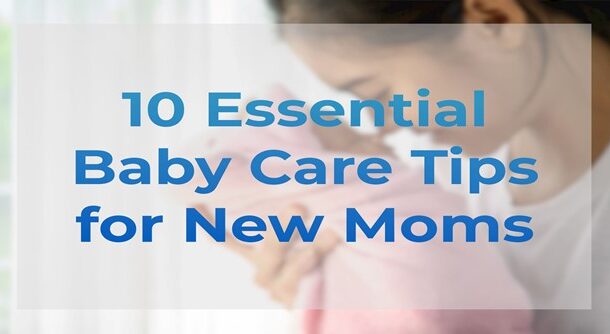TEN NEWS NETWORK
NOIDA (16/11/2022): No doubt, you have had a beautiful dream of being a first-time parent but certainly, there are things that you should know and be well-prepared. The world can be a large and scary place for your newborn baby as newborns don’t know you’re there to comfort, feed and care for them. Your baby can’t understand that they’re comfortable because you are there, or uncomfortable because they’re hungry. So, it becomes very important for new moms to provide extensive care, especially in the case of the first baby. Usually, those who become parents for the first time struggle in providing newborn baby care in the first month and also face difficulties in knowing how to care for their newborn in these exciting but challenging times.
As you know, feeding and diapering the newborn baby isn’t quite easy as it seems. So, during this taking help from someone from home or from a child specialist may come out as very helpful. During your hospital stay, you can take the assistance of the nursing staff for baby care tips especially in the case if you are first time mom. You shouldn’t hesitate to ask the child specialist to show how to provide care to a newborn and even approach more than once as it is said that practice makes perfect.

Essential care for newborn:
Here are key welcome tips for taking care of newborns especially if you are a first-time parent.
- Wash your hands properly-It is said that newborns don’t have their strong immune system developed, so they’re observed at higher risk for infection. So, it is advised that all those who come in contact of the newborn either at the hospital or at home, everyone should wash their hands properly before touching the newborn.
- Support your baby’s head and neck- Studies show that babies who are held for more than two hours per day thrive better and cry less. Your newborn’s neck muscles do not develop quickly, so one needs to support the newborn’s head while carrying her up. You have to give support of your shoulder or something to the baby’s head from the back.
- Breastfeeding – In the early days, feed your baby as often as she wants and for as long as she wants. She will begin to have fewer, but longer feeds after a few days. Your baby should feed at least eight to twelve times, or more, every 24 hrs in the first few weeks.
- Vaccination – Shortly after birth, your baby should receive the 1st dose of the hepatitis B vaccine to help protect against Hepatitis B. All babies should get the first shot within 24 hours of birth. This shot omits the risk of your baby getting the disease from you or any other family member who might be infected by this.
- Monitoring Temperature– For temperature monitoring in neonates at home a methodology like human touch, mercury-in-glass, and electronic thermometers can be used.
- Care at home – Baby care is needed both in the health facility as well as at home. You’ve gone through pregnancy; you might feel like you have no idea what you should do, especially if you are a new mom. Try to arrange someone who can provide baby care soon after the delivery.
- Care of premature / LBW baby- Preterm or premature baby or baby with low birth weight needs extra warmth and support for feeding. A baby who has an infection needs treatment with antibiotics. Babies who do not breathe or face difficulty in breathing need basic newborn resuscitation and for additional complications, they need to be kept in neonatal intensive care.
- Maintenance of proper hygiene– You need to keep yourself and your baby clean to ensure your baby is growing in a clean & disease-free environment. Diapers, if not changed on time, can be the biggest source of infection to your baby. Timely baths, sponge baths until the umbilical cord falls off (falls off within 7-21 days) and circumcision heals, and shampooing baby’s hair are some of the key hygienic measures.
- Warning signs: Recognition and timely response to a newborn’s emergency signs like wheezing, grunting, odor, crying, irritability, twitching, yellowness of skin, etc. is quite important. Whenever you see any warning signs, you must consult a doctor.
- Proper follow-ups – When caught early, many newborn conditions can be treated before they develop as long-term diseases with follow-up care. So, it’s important to take your baby to a pediatrician for routine follow-ups. The doctor would check your baby’s weight, length and other measurements. The doctor may ask you how your baby is eating, how much, how often and how frequently does your baby spit up after feedings, etc.
For any query orassistance, you can consult with senior pediatricians at Kailash Hospital by booking your appointments online or visiting the nearest hospital.












